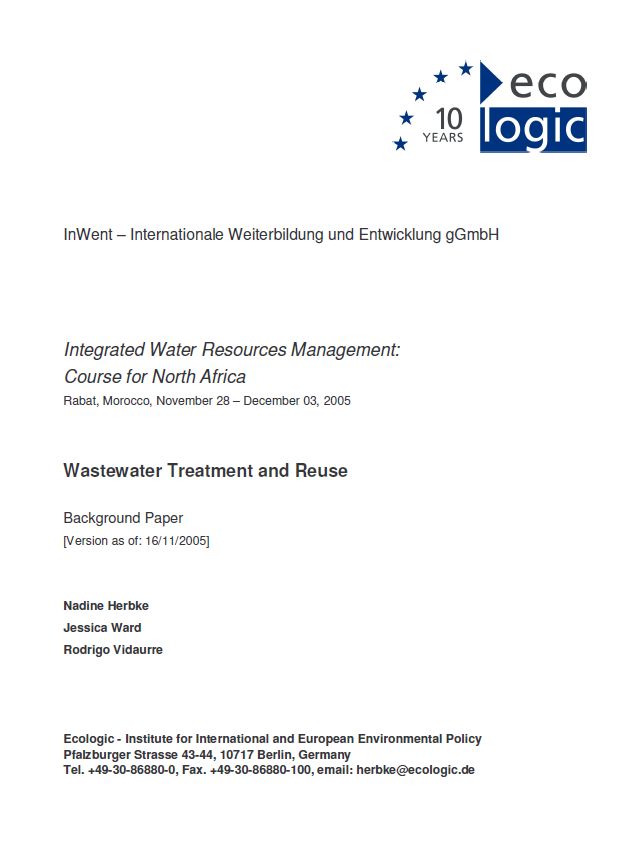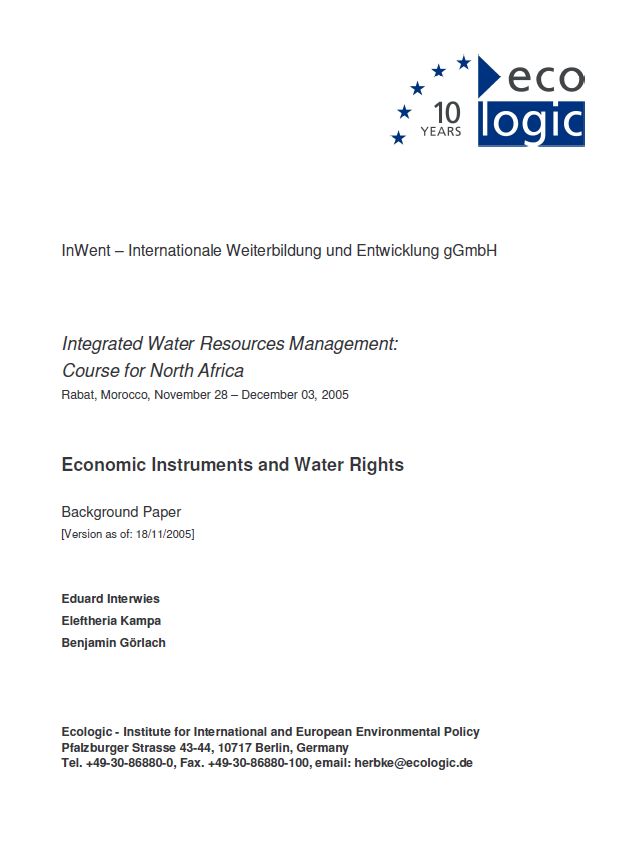The Middle East and North Africa (MENA) region belongs to the most water-scarce areas in the world. Population growth, urbanisation and industrialisation have led to an increase in water demands and resource pollution. As a result, there is a growing need for an integrated concept to manage the available water resources. Against this background, InWent – Capacity Building International, Germany, in co-operation with the World Bank Institute (WBI) and Office Nationale de L'Eau Potable (ONEP), organised the capacity-building workshop “Integrated Water Resources Management: Course for North Africa”. The workshop took place from 28 November to 3 December 2005 in Rabat, Morocco.
The workshop's aim was to improve the knowledge of local stakeholders with key responsibilities in the water sector about the regional water situation and related problems, as well as to develop possible solutions. The workshop also allowed for a wide information exchange between the participants.
Background
The Middle East and North Africa (MENA) region is one of the driest areas in the world. The resulting water scarcity exerts a growing influence on the economic and social development of most countries in the region. Population growth, increasing urbanisation and industrialisation, as well as a growing agricultural water use lead to a sharp increase in water demands, but also influence the quality of water resources. Insufficient wastewater treatment is partly responsible for water pollution and has, among other, an impact on public health. Ninety percent of water resources in the MENA region are used for agricultural irrigation. An integrated and participatory approach is necessary to balance out the different water needs and demands with the available resources. The concept of “Integrated Water Resource Management” (IWRM) focuses on an intersectoral and sustainable water resources management. The use and distribution of water resources must take account not only of economic and social, but also of ecological needs.
Project Objectives
Against this backgroumd, Inwent – Capacity Building International, Germany, is organising, together with the World Bank Institute and the Office Nationale de L’Eau Potable (ONEP), the workshop „Integrated Water Resources Management: Course for North Africa“ held in French in the city of Rabat, Morocco. The aim of the workshop is to provide experienced members of the water resources management sector in North Africa with a comprehensive insight into the various issues of integrated water resources management.
The participants were given background material on the various IWRM issues to prepare for the course. Ecologic prepared four of them on the following topics:
- Wastewater treatment and reuse
- Economic instruments and water rights
- Participatory Management: The Rhine basin case
- Managing floods and droughts
Ecologic also presented during the workshop. R. Andreas Kraemer led a session about the management of floods and droughts. Nicole Kranz addressed participative water management using the example of the European Rhine river basin.







